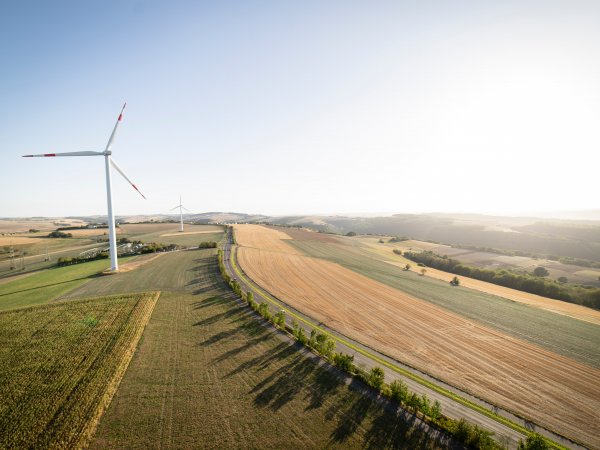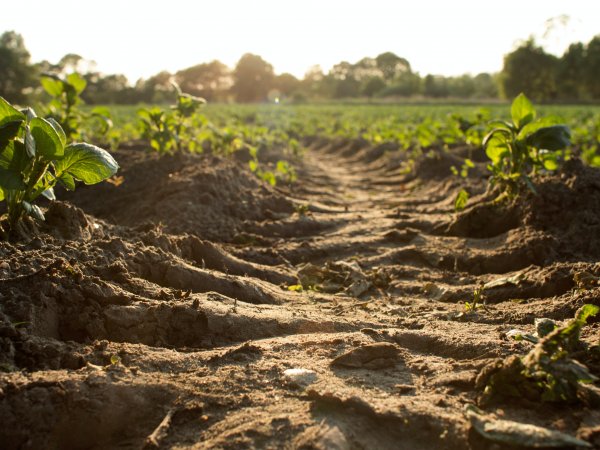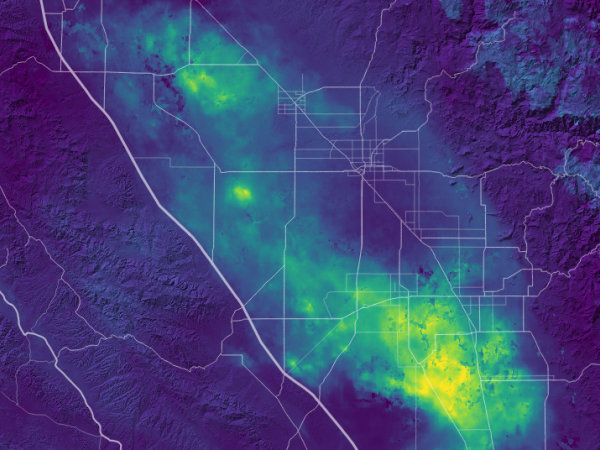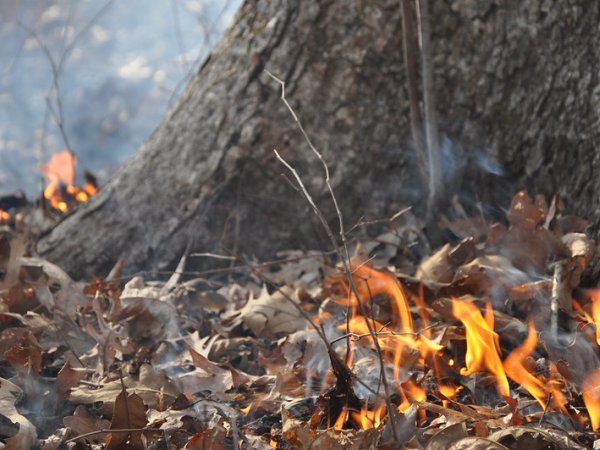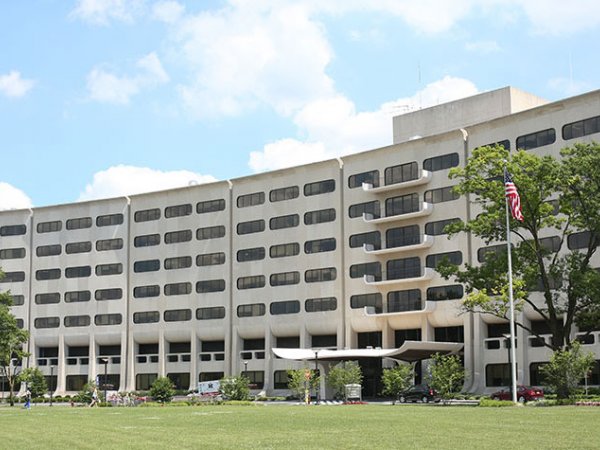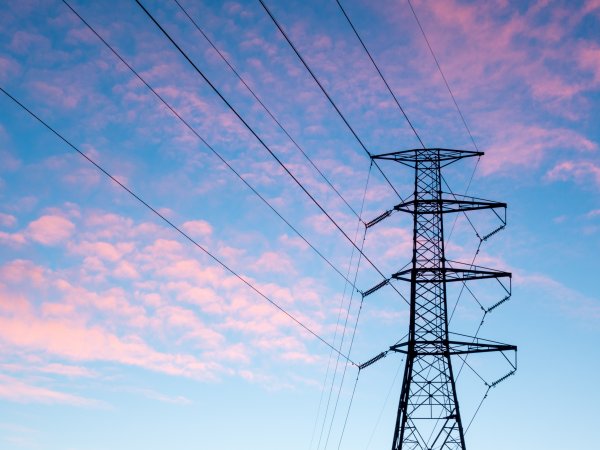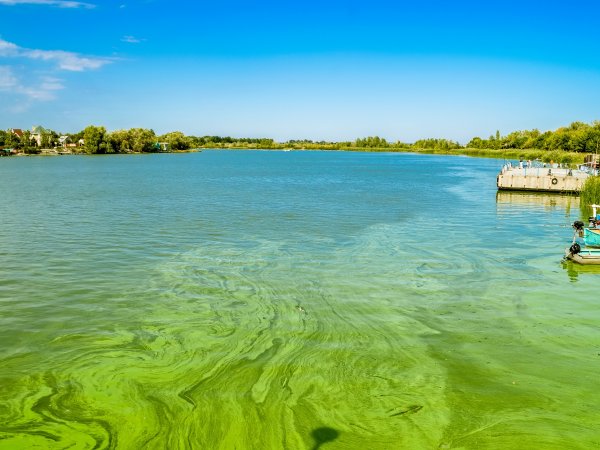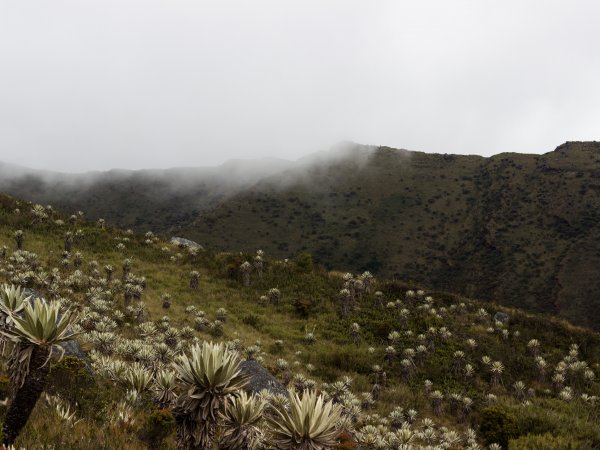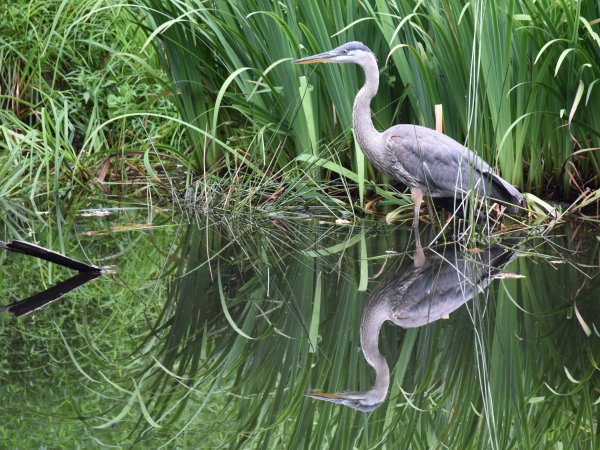For the 2022 Seed Grant Program, 80+ researchers from the following 11 colleges and 4 campuses were awarded funding for 21 collaborative research projects aligned with IEE's 5 research themes:
- College of Agricultural Sciences
- College of Arts and Architecture
- Smeal College of Business
- College of Earth and Mineral Sciences
- College of Engineering
- College of Health and Human Development
- College of Information Sciences and Technology
- Penn State Law
- College of the Liberal Arts
- College of Medicine
- Eberly College of Science
- Penn State Altoona
- Penn State Harrisburg
- Penn State New Kensington
- Penn State University Park
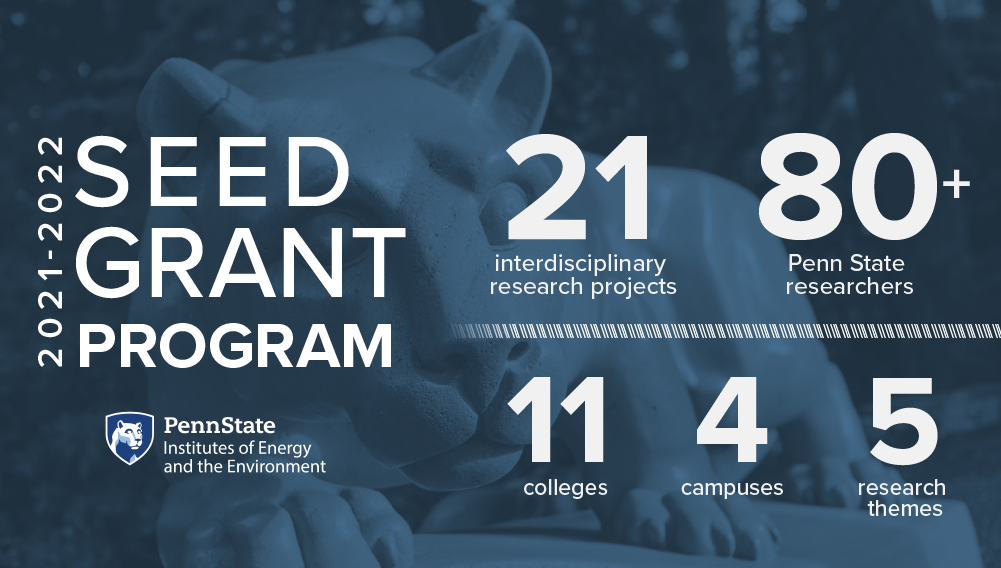
Funded Projects
The following 21 projects were awarded seed grant funding in the 2022 IEE Seed Grant Program.
A Data Science Approach for Scaling Synergistic, “One-Touch” Building Retrofit Solutions
A research team is supporting just and inclusive energy transitions in low-income housing by informing policymakers on how to reduce greenhouse gas emissions and improve health.
A One-Stop Online Platform for Water-Energy-Food Nexus Research: Integrating Systems Modeling and Deep Learning-Based Literature Mining
Researchers are developing a one-stop platform that would aid stakeholders in finding, sharing, and utilizing existing resources to develop systems models for water, energy, and food nexus research.
Connecting Policies to Actions for Creating Just, Biodiverse, and Climate-Resilient Urban Forests
This project is investigating how to create just, biodiverse, and climate-resilient urban forests in response to recent decreases in urban forest cover and ongoing environmental challenges.
Deciphering the Nano-Structural Mechanisms to Enhance the Performance of Water Splitting Catalyst by Advanced Correlative Characterizations
An interdisciplinary team is investigating the design of novel catalyst materials to produce hydrogen for fuel through water splitting.
Developing a System to Continuously Measure N2O Emission from Soils
This project explores the development of nitrous oxide monitoring system for soil emissions in an effort to mitigate its impacts on climate change and improve soil health.
Developing Tools to Study Urban Lighting Systems That Support Healthier Circadian Cycles
A research team is constructing and testing wearable sensors capable of measuring light in various indoor and outdoor environments to increase understanding of circadian lighting and circadian health outcomes.
Environmental Impact on Neural Circuitry Development of Psychiatric Disorders
This project is investigating how water contaminated with heavy metals may impact the brain development and contribute to psychiatric disorders such as schizophrenia and autism.
Evaluation of Sustainable Groundwater Production through the Poromechanics of Aquifer Rocks and Satellite-Assisted Mapping of Ground Displacement
A team is studying how to improve sustainable groundwater use by improving the understanding of the mechanics and hydrology of aquifer rock systems.
Facilitating Environmental Investigations Employing a Single Column Model
A research team is creating a feasible, less-daunting modeling system to study the impacts of anticipating environmental changes on coastal, terrestrial, watershed, and weather systems.
On-Demand 3D Printing of Food-Grade Biopolymer-Encapsulated Ferrate(VI) for Individualized and Equitable Access to Drinking Water
This project is investigating the direct-ink writing of controlled-release capsules that neutralize harmful microorganisms in water, thus enabling equitable access to drinking water in resource-limited environments.
Prescribed Fire Effects on Wildlife and Subsequent Tick Parasitism
A team is studying how prescribed fires impact wildlife stress and how that stress may increase tick populations.
Promoting Solutions to Climate Change and Health Challenges through Science-Policy Communications
This project is exploring how to increase the reach of climate change and health research to policymakers through science communication testing.
Quantifying Biomass Intra-Particle Transport to Enhance Biofuel Synthesis and Combustion
This project is exploring how to convert agricultural and municipal waste into high-energy biofuels that could result in a fuel that is a net-negative when it comes to carbon emissions.
Reducing Uncertainty in River System Forecasts to Maximize Nuclear and Hydro Generation
A team is improving weather and water forecasts that guide decisions to critical energy grid operations, specifically carbon-free methods such as nuclear energy and hydropower.
Reservoir Phosphorus Legacies: Reconstructing Long-Term Phosphorus Dynamics using Multi-Proxy Paleolimnological Analyses and Water Quality Monitoring
An interdisciplinary team is working to improve water quality by studying the effects of dams and reservoirs on phosphorus transport in rivers.
Survey of the Taxonomic and Functional Diversity of the Soil Microbial Communities in the Páramo of Chingaza (Laguna Seca, Colombia)
This project explores the microbial diversity in Andean Mountain tundra ecosystem soils under current climate conditions to understand how carbon is cycled in relationship with water saturation and projecting how these processes will change.
Transport and Fate of Microplastics in a Tidal Marsh Ecosystem, Delaware River
A research team is measuring microplastics in the sediments and mussels of an urbanized tidal freshwater environment to assess pollution impacts and the transfer of microplastics from land to sea.
URB-EC: Urban Embodied Carbon
This project is investigating the carbon effects of urban growth by developing an integrated modeling framework to quantify, assess, and predict urban embodied carbon under different scenarios of urban densification and decarbonization policies.
Urban Green Infrastructure and the Day-Night “Humid-Heat Islands” of the Northeast U.S.
This project is assessing humid cities in the northeast U.S. to demonstrate locally relevant evidence of urban greening vs. microclimate benefits to better inform and orient greening efforts to enhance urban climate resiliency.
Using Machine Learning to Design Novel Low-CO2 Cements with Optimal Performance
A team is developing novel 3-part cements that will reduce the world’s reliance on Portland cement, which is responsible for up to 10% of global anthropogenic CO2 emissions.
Water Cycle between Atlantic Ocean and Sahel: A Key Precursor of Monsoon MCS Rainfall
A team is working to understand ocean-land-atmosphere water cycle at a process level, which could improve seasonal forecasts of precipitation, and inform science-based policy to mitigate this region against climatic impacts.
RFP
Penn State’s Institutes of Energy and the Environment (IEE) Seed Grant Program is intended to foster basic and applied research on strategic interdisciplinary topics that leverage faculty expertise across the university. The Seed Grant Program strives to:
- Develop new interdisciplinary research teams and position them for high impact research and substantial external funding success;
- Pursue novel research in IEE’s theme areas, especially high-risk proof of concept projects; and
- Promote research development and mentorship between junior and senior faculty.
Important Dates
- September 15, 2021, 9-10 a.m. (EDT)
An informational webinar for program questions - November 19, 2021, 5 p.m.
Deadline: Proposals to be submitted on infoReady: https://psu.infoready4.com/#competitionDetail/1851251 - February 2022
Funding decisions announced - April 2022
Grant funds made available and must be expended by June 30, 2023.
Synopsis
IEE is seeking proposals that address at least one of our core themes, which have been updated to reflect IEE’s current strategic priorities.
Climate and Ecosystem Change
Managing the risks of anthropogenic climate change poses significant challenges now and into the future. Warmer and more extreme weather events will increase the risk of natural disturbances, increase the burden of pests and pathogens, threaten public health and biodiversity, and expose vulnerabilities in critical infrastructural systems. The burden of climate resilience and adaptation will fall unequally and inequitably, burdening people of color and rural and poor communities disproportionately. IEE’s commitment to supporting interdisciplinary research in energy and the environment means we have a unique opportunity to identify solutions to these impacts across natural, social, and built systems. Building on Penn State’s distinctive foundation in climate change research, we seek new and innovative advances in the following areas:
A. Climate science: including but not limited to climate or ecosystem modeling, ecological ata visualization, and ecosystem or human impacts.
- Climate risk: including but not limited to natural hazards, adaptation, decision- making, and social and ecological resilience.
- Climate solutions: including but not limited to justice, health, policy, natural solutions, climate-smart technology, infrastructure, and ecosystem management.
- Climate-induced ecological change
In addition to climate-focused work, Penn State is focused on ecosystem change more broadly and welcomes proposals in this area, including resilience and adaptation to change, provision of ecosystem-related goods and services, connections and feedbacks across ecological systems (including natural and human ecology), rapid evolutionary change (including impacts to biodiversity), and ecological foundations. For more, see the Ecology Institute. We welcome projects that leverage Penn State’s existing resources such as the Shale Hills Critical Zone Observatory.
Integrated Energy Systems
Improvements in energy efficiency, infrastructure stability, and a reduction in carbon emissions requires changes in existing and planned technologies. Policy and management will become increasingly important to the process of stewarding our natural resources. We are looking for ways to develop, advance, and disseminate innovative methods for all aspects of energy: production, infrastructure, utilization, engineered and natural carbon sequestration, energy storage and management, related environmental questions, energy efficiency of buildings, transportation, businesses, and other modes of consumption. Research to develop policy foundations supporting next-generation energy systems is an integral part of this theme and will be supported by the Penn State Center for Energy Law and Policy. At a time of rapid energy system transformation, these components will form the basis of the next generation of integrated energy systems to deliver clean, safe, abundant, affordable, and reliable energy as a foundation for economic and human development. In addition to this broad theme, we are particularly interested in projects that focus on the following:
- Negative carbon emissions (including the technical, biophysical and socio-political opportunities and challenges associated with natural and technical solutions that generate negative emissions)
- Renewable energy technologies
- Resilience of energy systems in response to stressors
- Legal and regulatory frameworks that incorporate governance or equity issues, or that can drive down non-hardware costs of low-carbon energy technologies
- Science-based legal and regulatory frameworks for emerging energy systems (e.g. microgrids, hydrogen, coupled systems, advanced nuclear, wireless electricity, etc.)
- Energy consumption behaviors and implications for policy design
Health and the Environment
The National Academy of Sciences, Engineering and Medicine (NASEM) has an “Environmental Health Matters Initiative” to “enhance the nation’s ability to alleviate harmful environmental impacts on human health.” The initiative is sponsored by major government funders as well as the private sector. We particularly welcome proposals that respond to this initiative. In addition, Penn State has major strengths in exposure assessment and monitoring both historic and predictive, which are of value during times of environmental change and disruption. Linking these historic established strengths to health outcomes is an underused opportunity. Penn State's Clinical and Translational Research Institute has access to large structured databases; Penn State clinical investigators can establish panel studies of vulnerable populations, in many settings—urban, rural, and globally. Biobehavioral health and health and human development are also subject of environmental impacts. Furthermore, linkage between gene-environment interactions provides an additional window on vulnerabilities. Measuring the health benefits of environmental remediation strategies is another area of research need that requires interdisciplinary teams. Expanding and leveraging this knowledge can enhance health in a myriad of different ways and address current and future environmental challenges. Areas of focus include but are not limited to the following:
- Climate change and health, including both health impacts and solutions (see Section 1)
- Impacts of air pollution, including topics such as improving exposure monitoring in vulnerable communities and how it impacts the severity of COVID-19
- Energy and health policy (including health drivers of energy choices as well as energy- related drivers of health outcomes)
- Water and health, including aquatic toxicology, microplastics, and more (see Section 5)
- Health and the built environment (see Section 4)
- Health, the environment, and environmental equity/justice considerations
Urban Systems
Anthropogenic and environmental changes are profoundly impacting the health and sustainability of humans and the environment. Across the globe, the trend toward urbanization is driving resource needs and impacts with water, food, and energy while disparately impacting low income/minority populations. This theme is meant to catalyze research partnerships related to urban systems, including the urban/rural interface, buildings, transportation, and more. As a new theme, we welcome ideas or ways to catalyze inter-disciplinary work in this space and recommend looking at the National Science Foundation’s information on Communities in the 21st Century for background. Potential ideas include the following:
- Health and human performance impacts of indoor and outdoor urban environments
- Finance and policy for net zero/carbon neutral building energy efficiency
- Innovative, low carbon materials and technologies for high performance buildings
- Understanding and accelerating transformation of energy systems, urban systems, and environmental systems for sustainability
Water and Biogeochemical Cycles
Water is foundational to the health, safety, and standard of living of people, the condition and productivity of ecosystems, the vibrancy of communities and economies, and even the stability of nations. Despite its importance, we continue to struggle across Pennsylvania, the nation, and globally to achieve many water-dependent social objectives, such as reliable water supply and sanitation, sustainable food and energy production, functioning ecosystems, and community resilience to the climate change extremes of flooding and drought. The resulting impacts are disproportionately experienced in communities of color and otherwise under-represented communities. Innovations in STEM disciplines are necessary, but not sufficient, for achieving water-related objectives in ways that are sustainable, resilient, and socially just, and must be joined by innovations in a spectrum of social sciences.
We seek innovative research that advances understanding and demonstrates solutions for addressing water-related challenges, with priority given to proposals focused on:
- Water and human health, including health impacts from degraded water quality (e.g., in urban or agricultural landscapes or from contaminants of emerging concern such as microplastics, PFAS) and in populations experiencing water insecurity.
- Aquatic ecosystems and ecosystem services, including critical processes for sustaining or restoring functional aquatic ecosystems and related economically, socially, or culturally valued services.
- Water-related resilience to climate change impacts, including human communities or ecosystem resilience in the face of extreme events (droughts, flooding, and sea-level rise).
Particular consideration under all of these topic areas will be given to proposals that focus on or encompass elements of policy/law, ethics and social justice, economics, finance and actuarial science, and other social sciences.
Program Guidelines
Eligibility
All Penn State faculty members (tenured, tenure track, and fixed term) who hold an appointment of half-time or more at any Penn State campus are eligible to submit a seed grant proposal as a Principal Investigator (PI). Researchers, students and staff from Penn State, other research institutions, Pennsylvania state agencies, federal agencies, and private industry may be included as collaborators in seed grant proposals, but subcontracts to entities outside of Penn State are not allowed. Please note that while most proposals are expected to include multiple investigators, there can only be one responsible PI for each application. In addition, investigators may only serve as PI on a single proposal.
New teams of investigators will be given preference over those who may have previously received an IEE seed grant. PIs awarded an IEE Seed Grant in 2020-21 are ineligible to serve as PI for this call but may participate as a co-PI or member of the project team on a submission.
Funding Availability
To encourage establishment of new collaborations and enhancement of networks, larger grants will require innovative partnerships of investigators from multiple colleges and/or campus locations. Funds up to $30,000 are available for multi-college/school (across University Park) and multi-campus (between campuses) collaborative grants; up to $15,000 for two or more faculty with different disciplinary expertise housed within the same college (University Park) or at a single Commonwealth Campus; and up to $5,000 for a single investigator project.
Funds may be used to support research development and coordination expenses such as:
- Graduate student stipend and tuition support
- Undergraduate student wages
- Instrumentation fees and sample analysis to collect preliminary data
- Equipment, supplies, and participant payments
- Travel associated with conducting/reporting seed grant research (Penn State participants only)
- Hosting a research planning meeting for an interdisciplinary team
- Planning and hosting conferences and symposia
- Funding for data conversion technology and wages to support date conversion
The following funding restrictions apply:
- Single college/campus funding, even with faculty from several departments, is capped at $15,000
- Regular appointment, summer, or supplemental salary support for faculty is disallowed
- Postdoc salary is disallowed
- Travel support to attend conferences is disallowed
Submission Instructions
All proposals must be submitted electronically via upload from the link at https://psu.infoready4.com/#competitionDetail/1851251 no later than 5:00 PM Eastern on November 19, 2021. Each proposal is limited to a 2-page project description and additional pages for an appendix.
Note: There is no preproposal stage, so the two-page project description needs to clearly address all the review criteria below. Also note that you are the expert in your field, so help the interdisciplinary team of reviewers understand the relevance of this proposed research (see the review criteria below)
Proposal format:
- Size 12 font
- Left aligned with 1-inch margins
- PDF document saved as PI_Last Name_2122_IEESeedGrant (e.g. Smith_2122_IEESeedGrant.pdf)
The two-page project description must include:
- Title of project
- PI and co-PI's names, including college, department and/or campus
- Project abstract (understandable by an interdisciplinary audience)
- Short description of how this project will leverage seed funding
- Nature of collaboration (new/existing; mentorship opportunities)
- Total funding to be requested, including brief budget justification
The appendix shall include:
- A list of all collaborators, their colleges and/or departments
- The name and email of the department financial contact to facilitate transfer of funds if awarded
- 1-page or 2-page resumes for the PI and all co-PIs
- References/citations may be included in the appendix
Review Criteria
Proposal reviews are based upon the criteria listed below. As you write, please keep in mind that
these proposals are reviewed by a cross section of researchers with different backgrounds; your ability to communicate your ideas to a broader audience is important for success with interdisciplinary project review panels.
- Intellectual merit of the proposal that may address the following:
- Creativity and innovation of the proposal: how does this project advance our understanding of the issue?
- Significance of goals and results: why does this project matter?
- Soundness of research plan. What is the research plan for this project? Is the proposed project in line with the budget that can be provided by a seed grant?
- Potential for impact:
- Positive impact in the intended field: how might this proposal lead to exceptional scholarship or broader impacts on society? Impact can include both technical advances in a field as well as impacts on communities, governance, or society at large, including human health.
- Potential for external funding: is there a credible and clearly articulated strategy for leveraging this seed grant investment into external funding?
- Potential for additional/continued activity beyond the seed grant phase may include plans for continued activity such as applications for external support from federal, state, or local government agencies, industry, private foundations; plans for continued research activities involving in-kind support, teaching activities, on-going scholarly work; plans for public engagement and outreach; and expanded implementation by external stakeholders.
- Providing specific examples, including specifics of external funding opportunities, or contact with program officers has been helpful in establishing the credibility of these strategies to prior seed grant reviewers.
- Match with IEE priorities:
- Relevance to strategic themes: does this proposal fit one of the strategic themes listed in this call for proposals?
- Interdisciplinary focus: does this proposal include researchers from different disciplines and perspectives? Is it clear how each person will contribute to this project?
- Faculty mentorship: What is the potential for developing new and productive collaborations between PIs? Is there consideration given to mentorship and collaborations between junior and senior faculty?
Reviewers will score each of these categories on a scale from 1-5 and will provide an overall ranking of fund, don’t fund, or fund with modifications.
- 5 = Excellent for all criteria in this category
- 4 = Very good response to the criteria in this category
- 3 = Good response to the criteria in this category
- 2 = Fair response to the criteria in this category but more information needed
- 1 = Limited information provided for this category
Please direct any questions regarding the proposal process to iee@psu.edu.
PDF Version of 2021–22 Seed Grant Program Request for Proposals
Review Committee
Reviewer Name, Theme Reviewed
- Amir Sheikhi, Climate and Ecosystem Change
- Andrew Warner, Water and Biogeochemical Cycles
- Anne Menefee, Integrated Energy Systems
- Benay Gürsoy Toykoç, Climate and Ecosystem Change
- Bert Chandler, Integrated Energy Systems
- Bruce Logan, Integrated Energy Systems
- Chaopeng Shen, Water and Biogeochemical Cycles
- Christopher Gorski, Integrated Energy Systems
- Corey Griffin, Integrated Energy Systems
- Donghai Wang, Integrated Energy Systems
- Erica Smithwick, Climate and Ecosystem Change
- Esther Obonyo, Urban Systems
- Gary Perdew, Health and the Environment
- Jasna Kovac, Health and the Environment
- Jennifer Macalady, Climate and Ecosystem Change
- Joshua Lambert, Health and the Environment
- Kirk French, Water and Biogeochemical Cycles
- Lara Fowler, All Themes
- Lawrence Sinoway, Health and the Environment
- Manzhu Yu, Urban Systems
- Margarita Lopez-Uribe, Climate and Ecosystem Change
- Mihyun Kang, Urban Systems
- Mohamed Badissy, Integrated Energy Systems
- Patrick Drohan, Water and Biogeochemical Cycles
- Rebecca Bascom, Health and the Environment
- Sherri Mason, Water and Biogeochemical Cycles
- Sjoerd Duiker, Climate and Ecosystem Change
- Tom Richard, Urban Systems
- Troy Sutton, Health and the Environment


